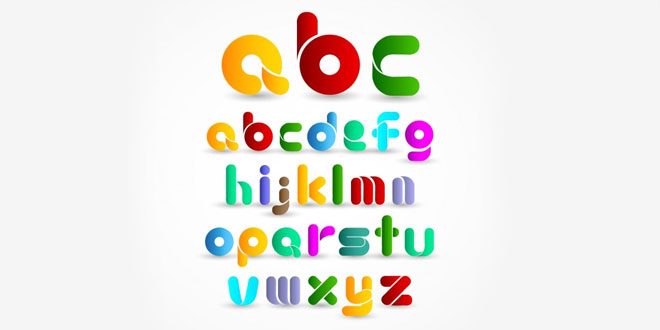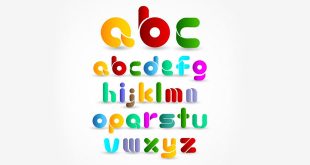Clause
Before heading into the types of clauses, it is important to learn about clauses in general. What is a clause? In simple words, it is a group of words which acts as a single unit. Clause is generally built around a verb. By definition, “a clause is the smallest grammatical unit that can express a complete meaning”. Take the following example: “He lives in America“. This is a Clause, which is built around the verb “lives”.
Types Of Clauses
Clauses are broadly categorized into two major types:
Independent Clause
An Independent clause is capable of making or can make a sentence by itself, as it comprises of subject and verb and conveys a complete thought. Independent clause is an essential component in every sentence. And the absence of the same makes a group of words a mere fragment which is a major error in writing. Consider the example given below:
Tom works – This is an Independent clause as it contains a subject (Tom) and a verb (works) and also communicates a complete thought. As per English grammar rules, there should be at least one independent clause in a sentence. This indicates that there can be more than one independent clause in a sentence.
He is poor – This is an independent clause. Now consider another independent clause: He is unemployed. Now, these two independent clauses can be part of a sentence: He is poor because he is unemployed. Here, the two independent clauses are joined by the conjunction “because”.
Independent Clause Examples
- Diane kicked the soda machine.
- A giant spider has made its home behind the shampoo bottle in Neil’s bathroom.
- Jenna and Michele are skipping their chemistry class to sit by the lake and watch the sun sparkle on the water.
- I love penguins.
- I drive a bus.
- He memorized a poem last night
- Mary will read narrate a story now
- Many people enjoyed the party.
- The assistant weighed the samples.
- Our supervisor submitted the proposal.
- The computer has two parallel ports.
- Phyllis is one of our best engineers.
- The cat is in the room
- John hit his sister
Examples For Compound Sentences Made Of Two Independent Clauses
- I am a doctor, and my wife is a lawyer.
- I want to be a nurse, but I need to receive my science degree.
- Joe waited for the train, but the train was late.
- I looked for Mary and Samantha at the bus station, but they arrived at the station before noon and left on the bus before I arrived.
- Mary and Samantha arrived at the bus station before noon, and they left on the bus before I arrived.
- Mary and Samantha left on the bus before I arrived, so I did not see them at the bus station.
Dependent Clause
Noun Clauses
A noun clause performs the same functions of a noun. It can be the subject of a verb, object of a verb, subject complement, object of a preposition, adjective complement:
Examples Of Noun Clauses
- What Billy did shocked his friends. (As subject of a verb)
- Billy’s friends didn’t know that he couldn’t swim. (As object of a verb)
- Billy’s mistake was that he refused to take lessons. (As subject complement)
- Mary is not responsible for what Billy did. (As object of preposition)
- Everybody is sad that Billy drowned. (As adjective complement)
Adverb Clauses
An adverb clause serves the same function as that of an adverb. It explains about or modifies the main verb of the sentence giving inputs on when, where, why, under what conditions. Different types of adverb clauses are given below:
Adverb Clauses Of Time
It gives information on the time of action. Usually, it is indicated by the subordinating conjunctions like when, as soon as, while, before, until, after, since, till, as long as, etc.
- Do not get off the train until it stops.
- I will go abroad after I finish my studies.
- I always switch the lights off before I step out of the room.
Adverb Clauses Of Place
It gives information on the place of action. Usually, it is indicated by the subordinating conjunctions like where, wherever etc.
- Put the keys where you can find them easily.
- This is the house where my family lives.
Adverb Clauses Of Purpose
It gives information about the purpose of action. It is usually indicated by subordinating conjunctions like that, lest, so that, in order that etc.
- We eat so that we may live.
- He ran fast lest he should miss the train.
Adverb Clauses Of Cause Or Reason
It talks about the reason for the action and is usually introduced by subordinating conjunctions like as, since, because, that etc.
- I like John because he is sincere.
- As he was not feeling well, he left early.
- I am sorry that I missed the concert.
Adjective Clauses
Adjective pronoun usually contains subject, verb and a relative pronoun. It modifies a noun and can be used to combine two sentences to form one sentence. Adjective clauses usually begin with relative pronouns like who, which, that or whom or relative adverbs like when or where.
Examples For Adjective pronouns
- The student who answered the question was John.
- Miss Wong, whom you met at our house, is going to marry Mr. Chan.
- I remember the day when we visited Paris.
Omitting The Relative Pronoun Or Adverb From The Adjective Clause
It should be noted that the relative pronoun or adverb introducing an adjective clause can be omitted sometimes. Look at the examples given below.
- I could not answer the question which you asked – I could not answer the question you asked.
- I have read all the books which you gave me – I have read all the books you gave me.
- The plan which I proposed was accepted by all – The plan I proposed was accepted by all
- That is the reason why he does not want to come here – That is the reason he does not want to come here
So, these were the basic types of clauses and there usages. Hope this article helped you tackle the confusions associated with the different types of clauses and help you identify and use them correctly in sentences.
 Class Notes NCERT Solutions for CBSE Students
Class Notes NCERT Solutions for CBSE Students


